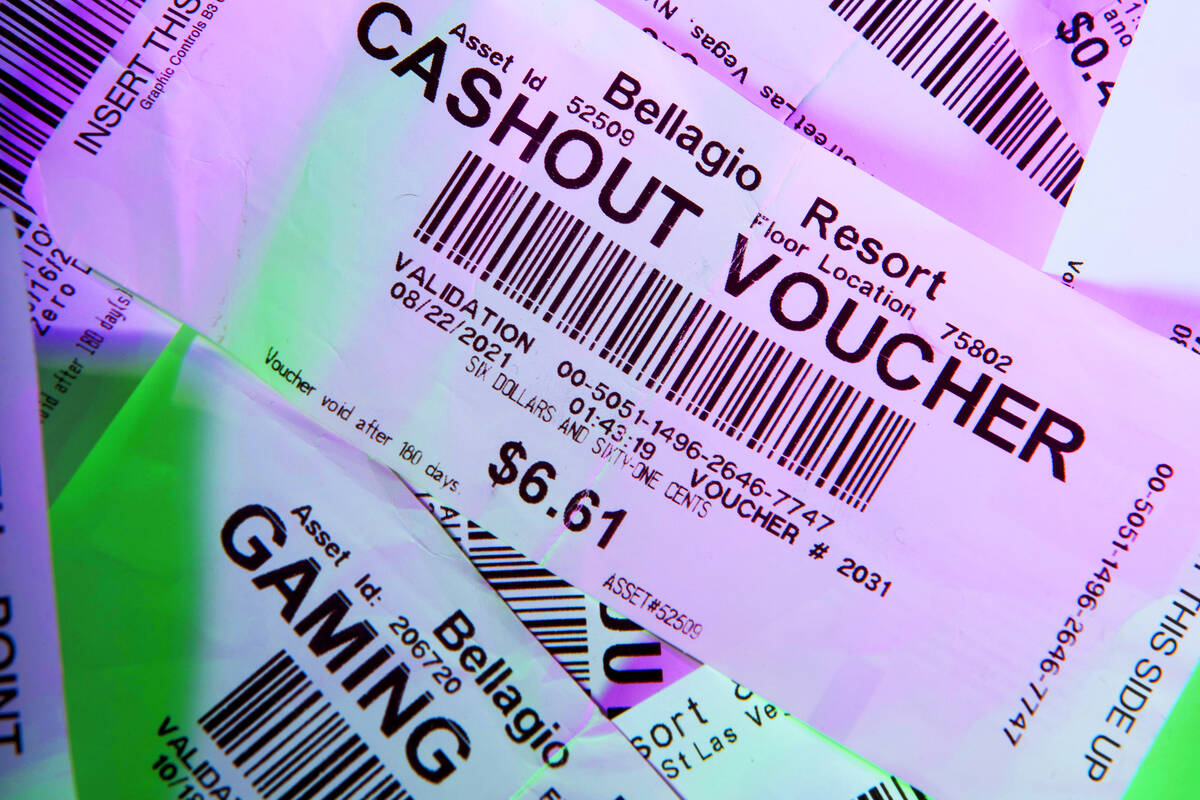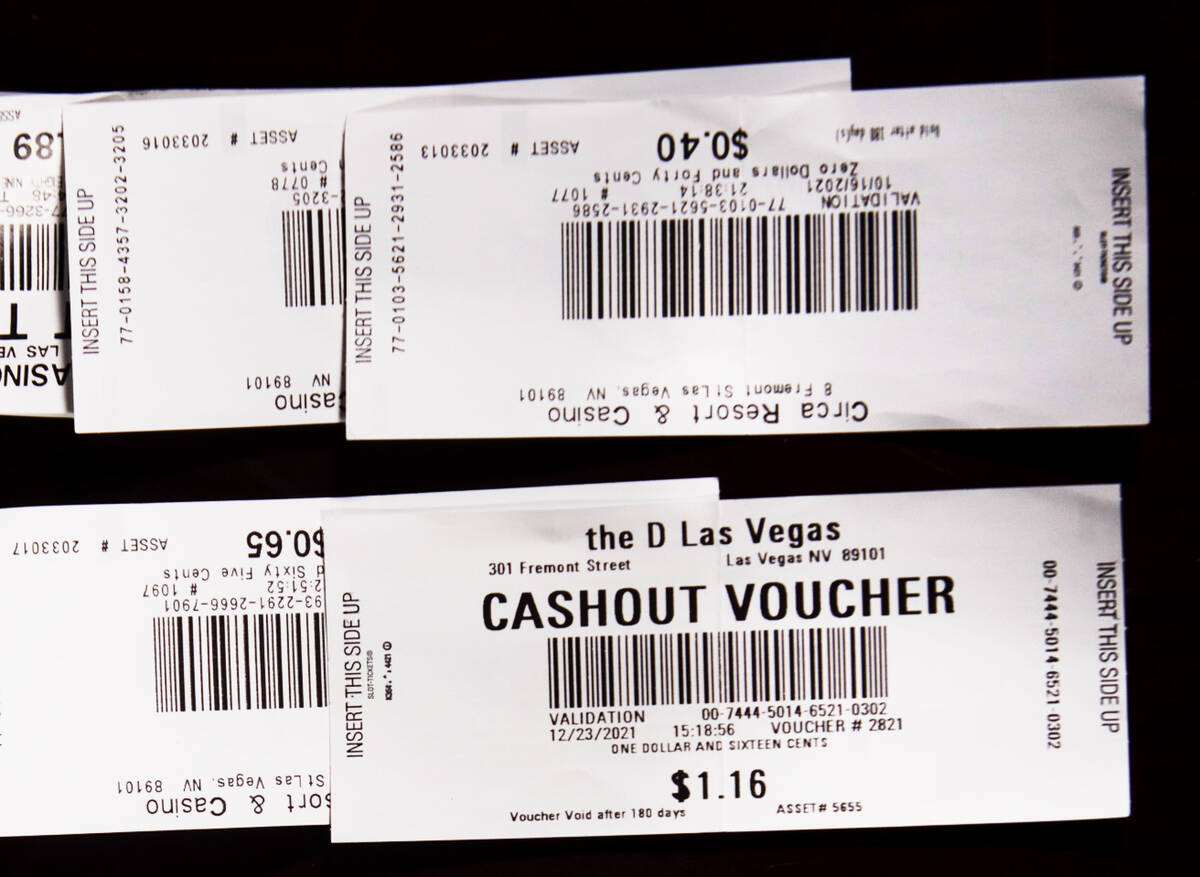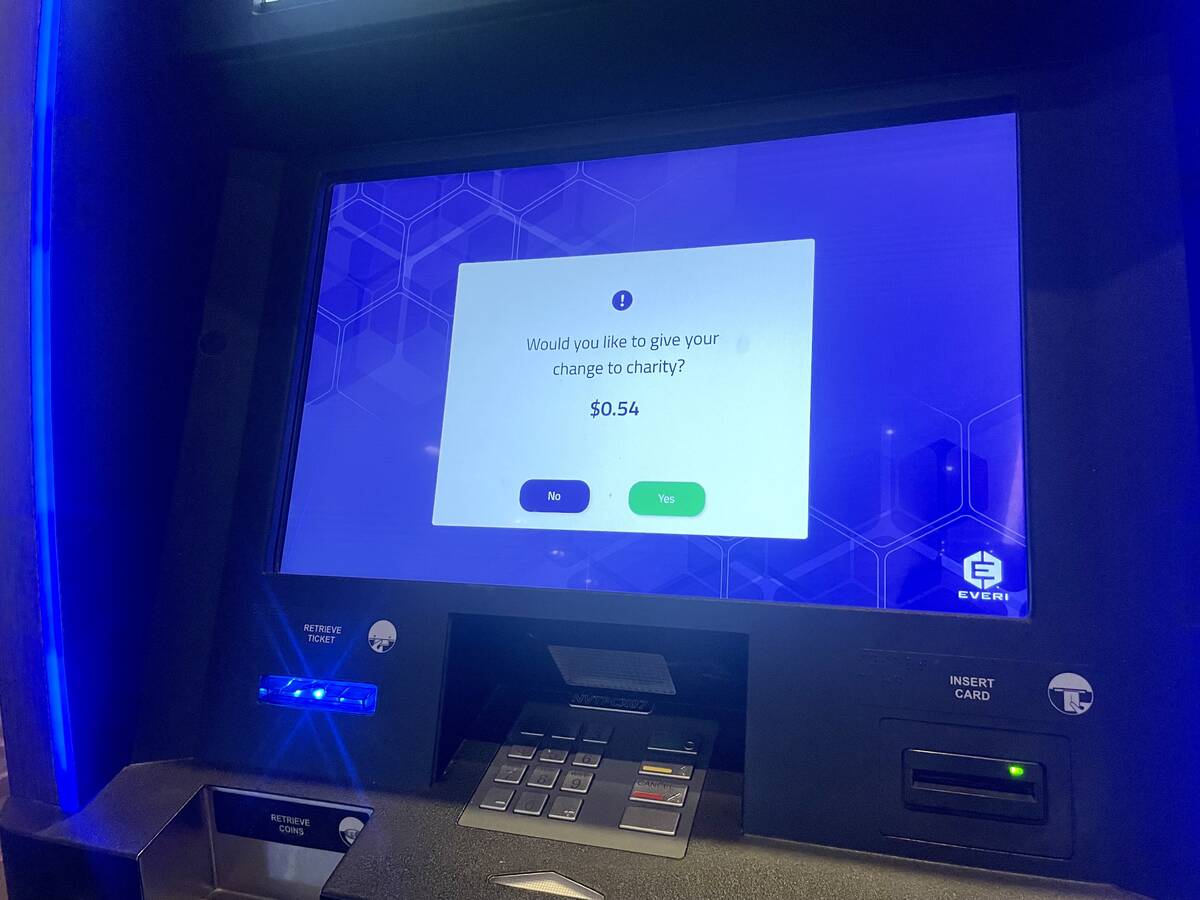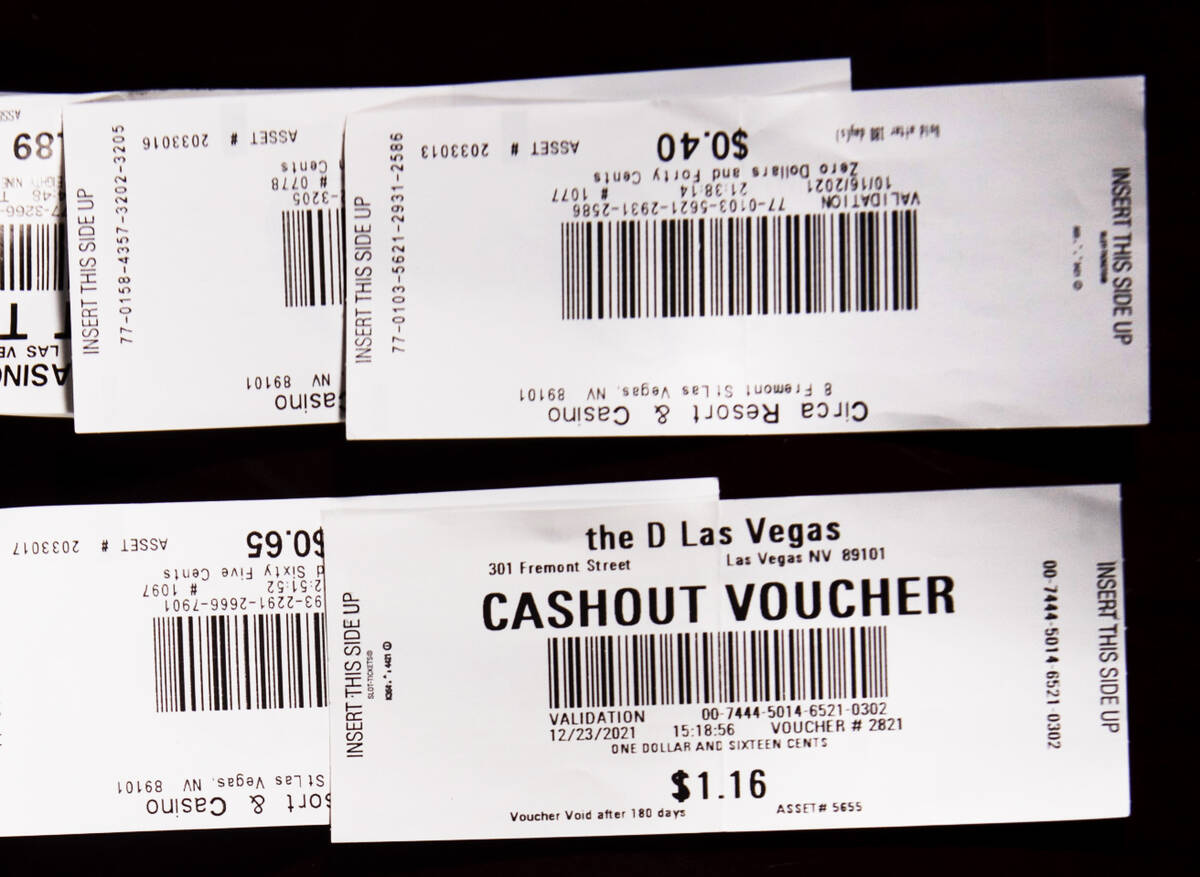How much did Nevada collect in unused cash-out tickets this year?
Jared Scott has noticed a change in the way casinos return change.
While playing at Vegas casinos during monthly visits for his slot-playing social media channels, Jackpot J Slots, he’s noticed that many major casino operators will issue a cash-out ticket voucher for change under a dollar, instead of dispensing coins at machines across the floor.
“I always want to have a bit of spare change in the car, so sometimes it bothers me,” Scott, a Michigan resident and frequent player in Detroit casinos, said. “But sometimes it’s almost nicer because I play a lot of machines. When you’re playing this kind of volume, if it happens enough it can add up.”
Slot players may notice the cash-out vouchers scattered around casino machines or left in their pockets from their adventures. Some choose to hold onto the receipt-like tickets for future visits, but others leave them for future players and lucky scavengers to grab.
Still, even those tickets expire — and the house only keeps some of the money.
How Nevada collects on unused vouchers
Generally, vouchers last 180 days, or about six months, before they’re unusable. After that, Nevada collects 75 percent of the expired wagering voucher and the casino licensee keeps the rest, as set by a 2011 state law. The money is returned to the Silver State’s general fund.
However, some casinos’ vouchers expire in fewer days, according to the casino tracking website VegasAdvantage.com. Those include Circus Circus, El Cortez and Treasure Island, to name a few — so be careful to read the ticket’s fine print.
Gamblers left $24.4 million in Nevada casino vouchers in the fiscal year that ended June 30, according to preliminary results from the Nevada Gaming Control Board. Experts say the funds paid to the state have generally gone up with the increasing gross gaming revenue collected, which has risen to historic levels post-pandemic. In fact, 46 percent of what the $183 million collected since the law’s implementation was collected after 2020.
The casinos, on the other hand, will report 25 percent of the redemption value in its gross revenue for the month. The remaining is reported to the Nevada Gaming Commission for the state’s coffers. Last year, Nevada’s casinos added about $6.1 million to their revenue – down slightly from its $6.4 million peak in the 2023 fiscal year.
The most collected was in the 2023 fiscal year, state data shows. Then, the state collected $19.3 million of the nearly $25.8 million that gamblers let expire. The state collected about $18.3 million in the most recent fiscal year.
Nevada isn’t the only state with a process to collect the expired vouchers. New Jersey and Pennsylvania also collect funds that have expired, while other states don’t set rules.
A small bother
The state doesn’t collect data on how many vouchers go unclaimed each year, so it’s hard to determine how much of it was in change versus a bigger prize. But some players have noticed that tickets worth less than a dollar are often left behind by gamblers or kept as mementos.
Amanda Belarmino, a hospitality professor at University of Nevada, Las Vegas, said she suspects a coin shortage during the pandemic kicked off a trend of increased voucher printing.
“Guests may plan to reuse the vouchers or they may intend to go to the cage but they never get around to it,” she said in an email. “New guests may not know that they can get the change. It is frustrating for consumers to feel that they are not getting their full winnings. While minor, they may also be some consumers who kept cash-out vouchers from closed casinos as souvenirs.”
Others have pointed out law changes in 2021, which added electronic table games and some sports wagering tickets to the eligible sources of fund collecting, could have led to the recent years’ increase.
Scott said he thinks small ticket vouchers often bothers frequent gamblers – but only to a point.
“I see tons of people standing in line to get their change,” he said. “In general, most people just don’t care. Even if they’re annoyed and don’t wish it was that way, I don’t think anyone’s not coming back to the casino because of it.”
Contact McKenna Ross at mross@reviewjournal.com. Follow @mckenna_ross_ on X.




















